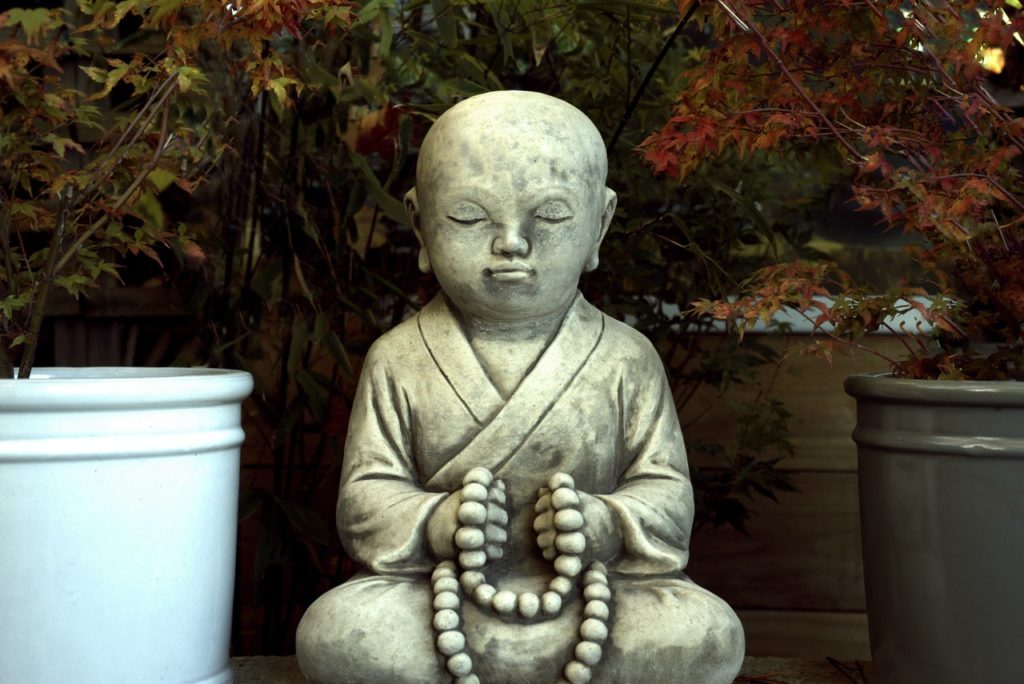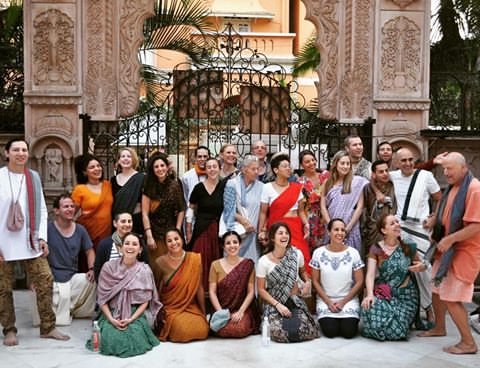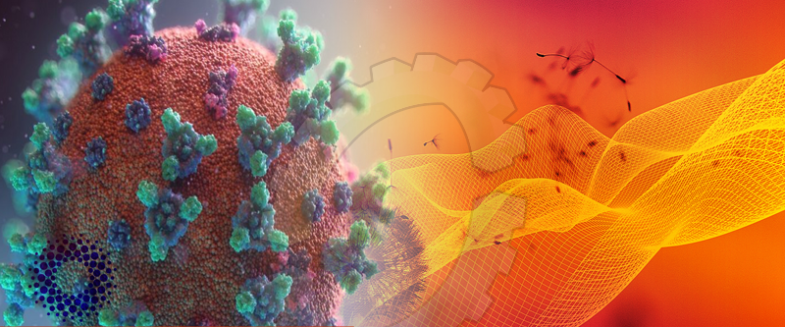What is mantra meditation and its benefits?
You are not alone in your endeavor for peace and harmony in a beautiful world clouded with darkness and confusion.
Actually, we want to congratulate you. Well done. You are AMAZING. Just a little further, and the hankerings of the innermost chambers of your heart will be fulfilled beyond all expectation.
The following is an article about mantra meditation, especially the maha mantra, as well as a brief description of some of the benefits of this ancient process.
If you are interested in mantra meditation, you are welcome to join our daily online guided sessions, Learn to Meditate.
What is mantra meditation?
Online you will find a myriad of answers to this question, which can be a little daunting for one looking for answers! Ask 10 different people, and you will get 10 different answers. Is that the uniqueness of an ancient practice, or the byproduct of an overwhelming information age?
Allow us to break it down for you.

What is mantra?
Mantra has been used to describe many things but let’s go to its original meaning
The word “mantra” has its roots in the ancient Sanskrit language:
Man – the mind
Tra – to free or deliver
So the true meaning of mantra literally means that which frees or delivers the mind.
But what exactly are we trying to free our minds from? Read on for more answers!
What is meditation?
Some sources will tell you meditation means taking responsibility for your states of mind. Others will tell you it’s about training your awareness and perception. Still others will tell you meditation is a tool to focus your attention.
Throughout the ages, the divine masters of the Vedic Bhakti yoga tradition have uniformly stated that real meditation means to see the true form of divinity within one’s own heart. And this leads us to our main point:
What is mantra meditation?
You see the mind is like a mirror and it’s covered with dust. If you try to see your clear reflection in a dirty mirror, what you perceive will not reflect reality. The image is distorted.
If one wipes away the dust – ah ha! Then one can see their true self in all its glories.
So mantra meditation is the process of cleaning away the dust on the mirror of the mind, through which our consciousness is reflected. This allows one to perceive their true, original, spiritual self.
And this is the first “lesson” to walk away from the article with:
You are not this body, but a spiritual spark more brilliant than even the sun, made of substance not of this world!
Mantra meditation benefits

Mantra meditation will allow you to connect with your true spiritual self, by connecting with that supreme, all attractive and personal divinity that is accessible from within each and every one of us.
But hold up a second! Aren’t we getting a little ahead of ourselves?
It’s true, mantra meditation has hundreds of benefits that aren’t even “spiritual” in and of themselves. And let’s be honest, that’s why most of us are here.
For the majority of us, we turned to mantra meditation because we wanted to get free from stress and take control of our crazy mind that is always giving us so much trouble. Mantra meditation, if done in the correct way will surely produce most, if not all of these effects, as practically we have experienced in our own lives:
- Freedom from stress and anxiety manifesting a sense of calm.
We have so many responsibilities, so many things on our minds. Most times, our duties overwhelm us. We have to make difficult decisions. This drains our energy, and causes so much tension in the mind.
Mantra meditation will help you cultivate your own, internal, sacred space. This is your shelter, and even the greatest challenges cannot penetrate your fortress. For the sincere practitioner of mantra meditation, such challenges only make your fortress stronger. And not only that, the aura of your spiritual fortress will permeate around you. You will manifest serenity, and influence your environment. All of a sudden, you find yourself living for the benefit of others, which is the most nourishing and satisfying thing for the heart.
- Self-confidence and positive outlook
With mantra meditation you can find yourself having access to realms of your inner being that were previously covered over, and what is the result? You become strong in your inner world. Your environment becomes favorable. As you begin to master the workings of your inner world, every situation that life throws at you becomes an impetus for your self-improvement. You see the challenges of life as an opportunity for you to grow. There is no pessimism, only optimism. Mantra meditation is really so powerful! The proof of the pudding is in the eating…
- Knowledge
So you might be asking this question, how is it that from mantra meditation I can gain knowledge? And knowledge of what?
As we spoke earlier, mantra meditation reveals to the practitioner the personal, super-subjective divinity within ones our existence. This is the “soul of our soul” – and in the same way that along with the sun rise and the dissipation of darkness, one simultaneously sees the sun as well as one’s own self and all other objects, connecting with this divinity gives one the perception of their identity beyond the body and mind.
But mantra will also put you in touch with a more sensitive, deeper side of yourself. You become aware of skills you never had before, subtle perceptions that were intuitively guiding you in your life that you were not previously conscious of. You become aware of your sixth sense, so to speak.
Not only that, but you become aware of the “things'' that are happening within you on a gross and subtle level. You become conscious of your body, the way it feels and works. And you can see the way you process thoughts and emotions. Then, you have the inner strength to discard those thoughts, feelings and therefore behavior that are detrimental to your growth. On the path of Bhakti yoga, this is called anartha nivriti. Artha means wealth, so anartha means without value, and nivriti means to discard. So anartha nivriti refers to the removal of those unwanted thoughts and behaviors which are impediments to your development. You will blossom like a beautiful white lotus in the cooling rays of the moon into your true self, the person you are underneath the layers of conditioning forced upon you by an environment that you are not in control of.
- Balance
Your new found intuition, a byproduct of your daily practice, will help you in many ways. You will be able to make better decisions with your new found clarity. It will become easier to juggle the different aspects of life. You will find more time in your day (especially for the things that you love!!). This is the magic of mantra meditation, even though it appears externally to be time consuming, you will actually find more time in a day to do the things that you want. This is just the magic of how it works. So naturally, your life will be more balanced and wholesome, because you yourself are becoming more and more balanced!
- Peace
Yes, certainly, you will find peace. At first you might not have this experience. For example iIf you are covered in dirt and filth and you get in the shower. whenIf you look down you might see all the filth coming off and think “oh this water is so dirty, this shower is not performing its function properly, let me get out!” But just hang in there dear friend, just a little longer, in a short time you will see crystal clear water, and not only that, you yourself will also be crystal clear!! (especially if you use the “soap” of the maha mantra!).
- Focus
If you are practicing focusing on the mantra, this skill will naturally transfer into whatever else you focus on. Like going to the gym and training your muscles, mantra meditation will train your mind to oscillate less and less. One becomes steady. You will be able to focus with more precision on the tasks at hand!
- General well being
Take it from us, if you take seriously to the process of mantra meditation, so many areas of your life will improve. There is no loss, only gain. As you become more connected with yourself, your environment and the universal flow, that highest conception, spontaneously your life will improve. You will learn to overcome the ocean-like obstacles of this world as if they're a small puddle.
We aren’t promising you that there won’t be challenges, that there won’t be any more grief and tears in your life. There will be. That is inbuilt into this world. But through practicing mantra meditation you will cultivate a frequency perspective that is above and beyond this and you will see through eyes tainted anointed with spiritual vision.
Different kinds of mantras
Some mantras are chanted silently in the mind technically called “smaranam” or remembrance.
Others are chanted softly, so that only you can hear, and this is called “japa.”
Others are chanted loudly for the benefit of others, and even collectively in a group, called “kirtan.”
Naturally, you will find a variety of mantras from a variety of traditions, even with a variety of motivations and results.
You must have come across the vibration “OM” – the sound of the universe.
or perhaps another mantra you heard is ‘Om mani pade hum”
Even early on in our spiritual journey I began with the Aramaic mantra “ma-ra-na-tha” – which translates as “come, our lord.”
We want to humbly suggest another mantra, referred to as the “maha mantra,” literally the great mantra. This mantra is:
Hare Krishna Hare Krishna
Krishna Krishna Hare Hare
Hare Rama Hare Rama
Rama Rama Hare Hare
The ancient Vedic yoga texts proclaim the chanting of the Hare Krishna mantra to be the maha-sadhana (great practice), the best and only yoga practice for this dark age of quarrel, where conflict and hypocrisy prevail. This maha mantra is the most powerful way to open the heart and experience ecstatic divine love.
What's next?

With most things in this world, if you want to learn a skill or art, you have to approach someone who knows the science of that practice and take instructions from them. This is not to say you cannot practice mantra meditation from the comfort of your home. You don’t need to run off to the forest and search out some sage to meditate and eat roots and berries and dress only in tree bark. It’s just that the practice of mantra meditation is such a subtle art that we should take guidance from fellow practitioners. We do have to fly our own plane on our journey through this material world, but flying becomes easier in formation. So take strength and association from like-minded souls also striving to develop and grow. And if we can find those people who are further along the path than us, we can take inspiration and guidance as they share their realizations and experiences with us.
Our greatest inspiration has been Swami Srila Prabhupada who ins 1965 at the age of 69 travelled to New York aboard a cargo ship with only 7 dollars and a trunk full of bhakti yoga mantra meditation texts, suffering two heart attacks along the way, to share this timeless wisdom with the modern world. What we have today to share with you is his legacy.
Concluding words
Mantra meditation is a tool, a facility, for you to evolve, and ultimately perfect your life. Whatever your desires are, whatever your motivation is, take to this chanting. Somehow, by some great fortune, you have taken an interest in this subject matter. So take advantage, take action. Embrace an ancient wisdom, guaranteed to lead one to the true purpose and real meaning of life.
Join us for our daily guided mantra meditation class online Learn to Meditate, led by the Chant Now team, who spent their lives practicing and teaching bhakti yoga and the art of mantra meditation.
The online classes will include detailed instructions focusing on the Hare krishna maha mantra, with guidance and tips for practice, as well as the philosophy of this ancient tradition, allowing you to live life to the fullest.
Whether you are a beginner who has never meditated before or you’ve had experience with other techniques and have not seen the results you’d hoped or just want to explore more options before committing to a technique – our classes promise a profound, truly transformational experience, which positively benefits every aspect of your life.
Not able to commit to a daily class? Check out our free 7 Lesson Chanting Workshop
















